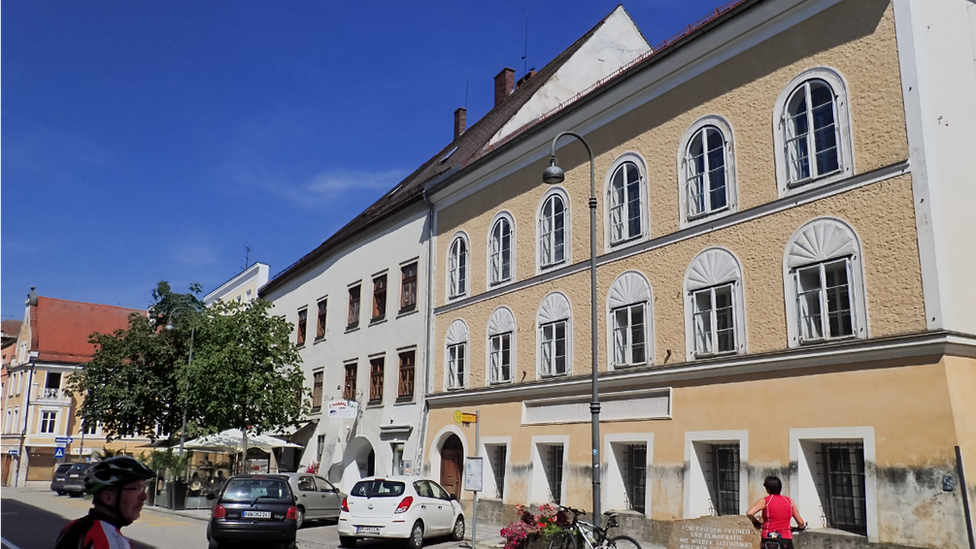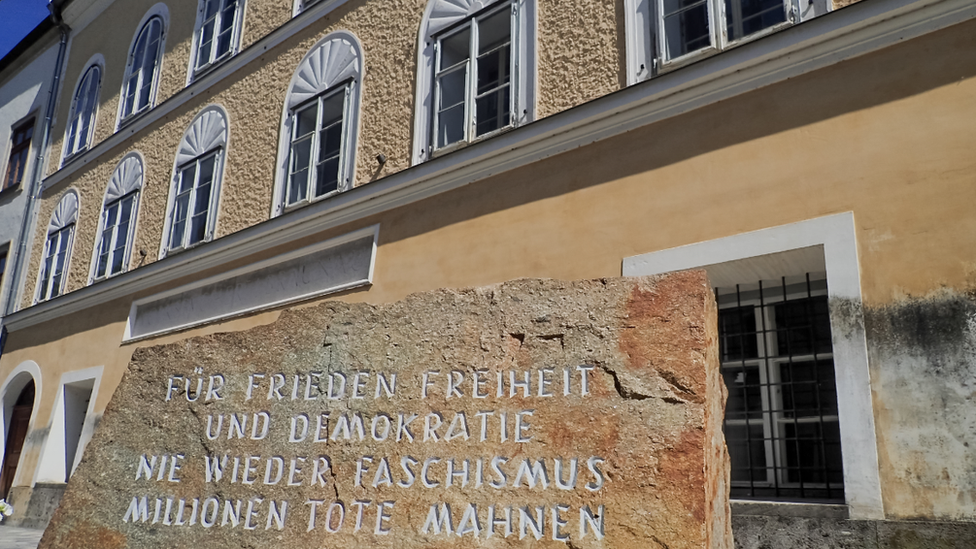Austria to pay for Hitler's house
- Published

The building stands on a busy street
An Austrian court has ordered the government to pay the owner of the house where Adolf Hitler was born 1.5m euros (£1,3m; $1.7m) over a compulsory-purchase row.
Ried im Innkreis district court says the state must substantially increase the amount it paid for the house in nearby Braunau am Inn, "taking into account the particular feature that the main building was the birthplace of Adolf Hitler", the local Oberösterreichische Nachrichten, external newspaper reports.
In 2016 the state bought the unassuming three-storey building for the knockdown price of 310,000 euros (£272,500; $352,930), and owner Gerlinde Pommer has campaigned to be compensated in full for the loss of her property ever since.
The court ordered the government to pay her 1.5m euros (£1,3m; $1.7m), which was exactly what her legal team said the building and its adjacent parking lot were worth on the basis of a property survey.
The state has not yet said whether it intends to appeal against the ruling, the Salzburger Nachrichten, external newspaper reports.
Building in limbo
The dispute dates back eight years to when Ms Pommer ended a decades-old lease the interior ministry had taken out to run a home for the disabled on the premises.
She objected to plans to make the building more wheelchair-friendly, and then refused all government offers to buy it, or carry out renovations that the authorities deemed necessary.
A plan to turn it into a centre for refugees in 2014 also came to nothing.
You may also be interested in:
In the end the state took out a compulsory purchase order, and the courts rejected Ms Pommer's complaint that this violated her constitutional rights.
But the property has remained in limbo ever since, as the authorities have not been able to decide what to do with it.
'Nothing will remain'
The interior minister of the time, Wolfgang Sobotka, told Die Presse, external newspaper that he wanted to demolish the house "so that nothing will remain except the cellar", and replace it with new premises for a charitable foundation.
The aim was to deter the neo-Nazis who gather at the site each year to mark Hitler's birthday - the Nazi leader was born there in 1889.
But the house is a listed building, with some parts dating back to the 17th century, and its demolition would be highly controversial - not least because some Austrians see the plan as an attempt to erase an uncomfortable link with the country's Nazi legacy.
Questions about Austria's past have if anything gained in public prominence since the electoral successes of the far-right Freedom Party, which has been part of the coalition government in Vienna since 2017.

The marker outside the house says the millions of dead warn against the return of fascism
Reporting by Martin Morgan
Next story: Tajik pop star fined over birthday law breach
Use #NewsfromElsewhere to stay up-to-date with our reports via Twitter, external.